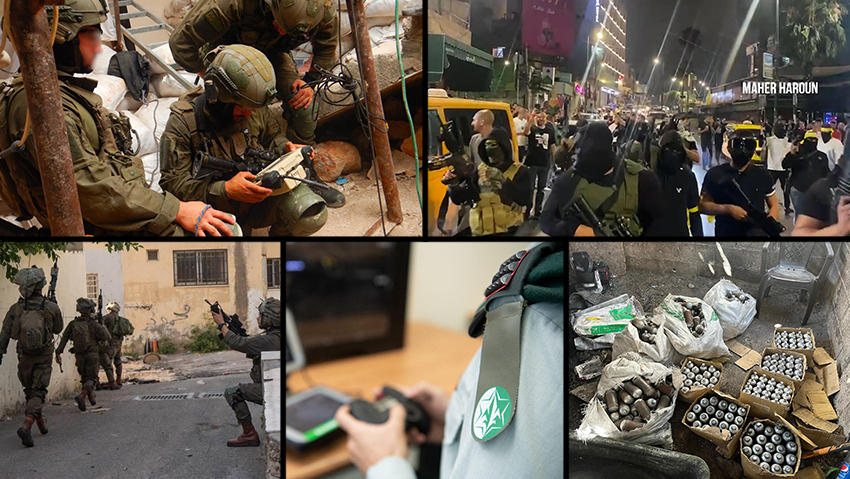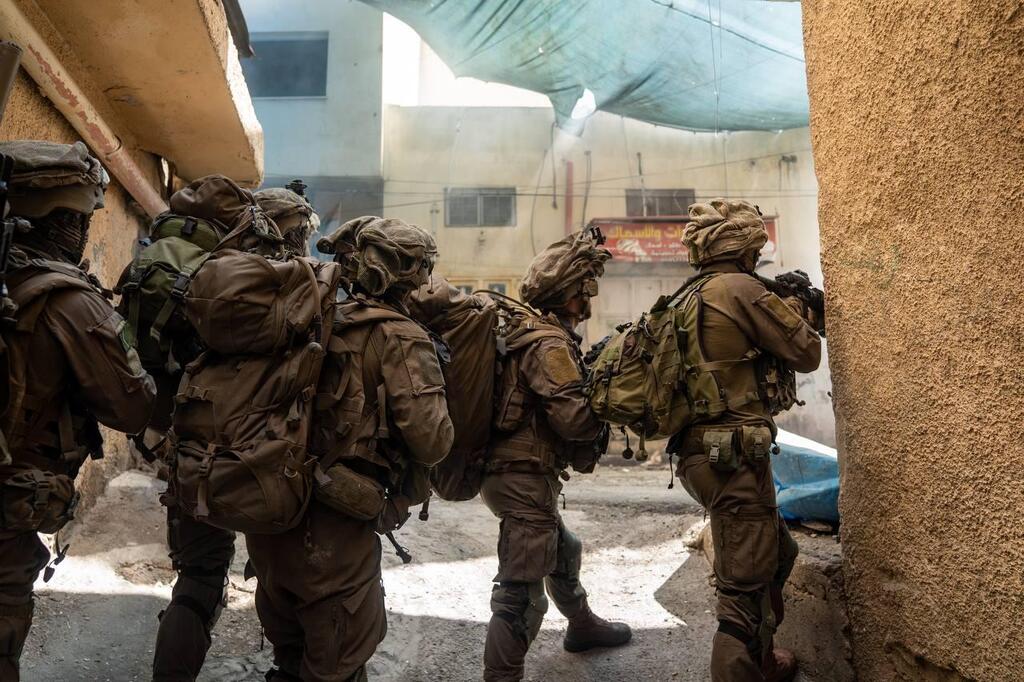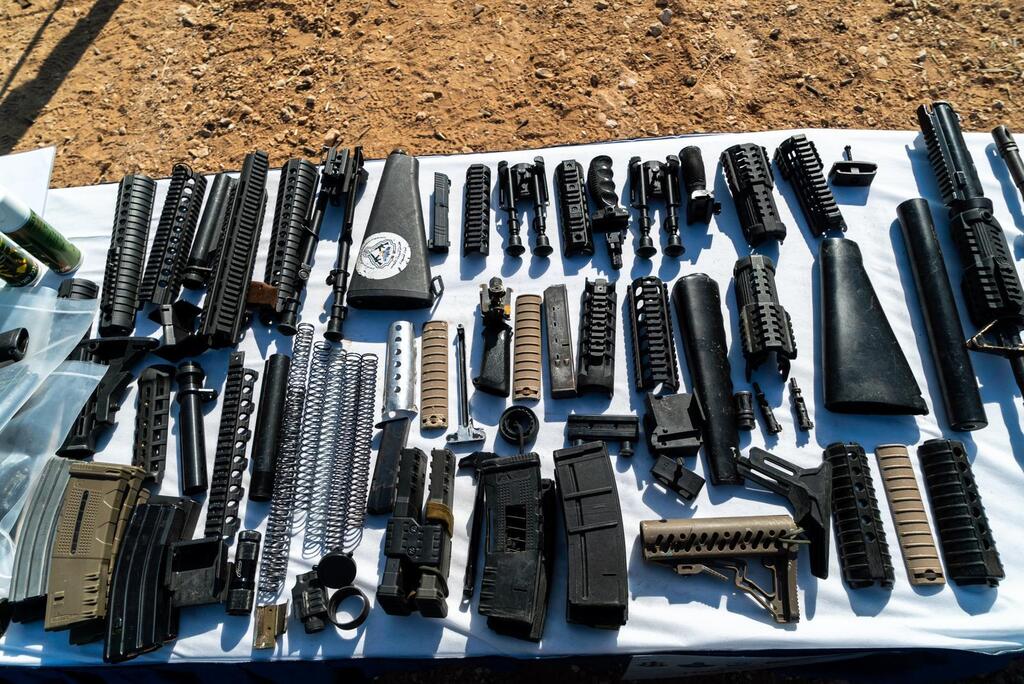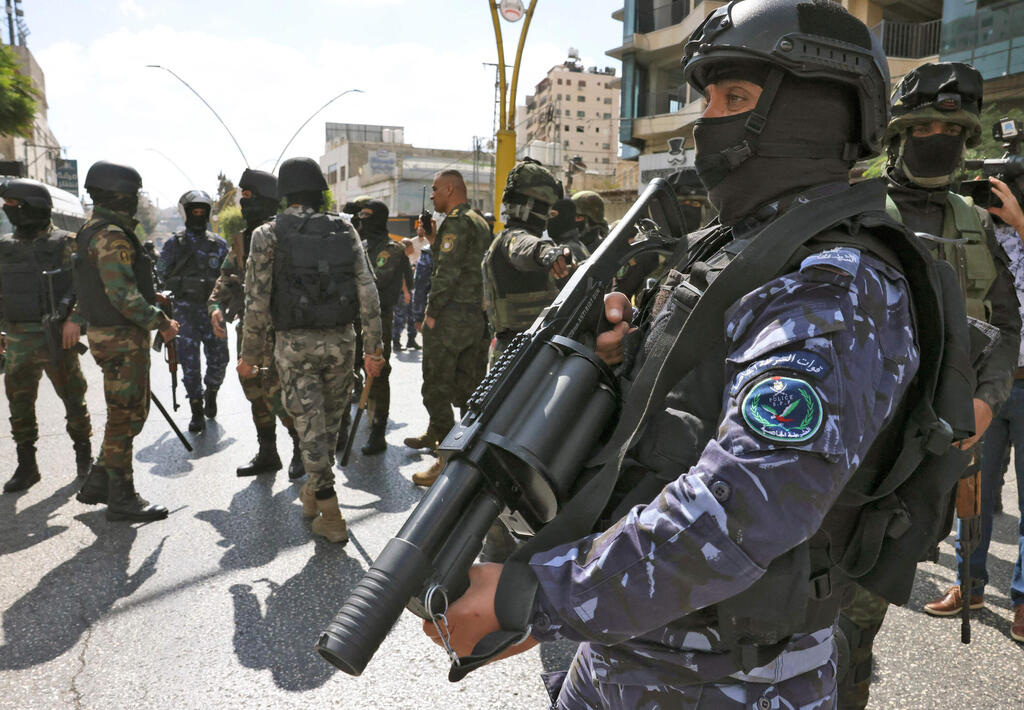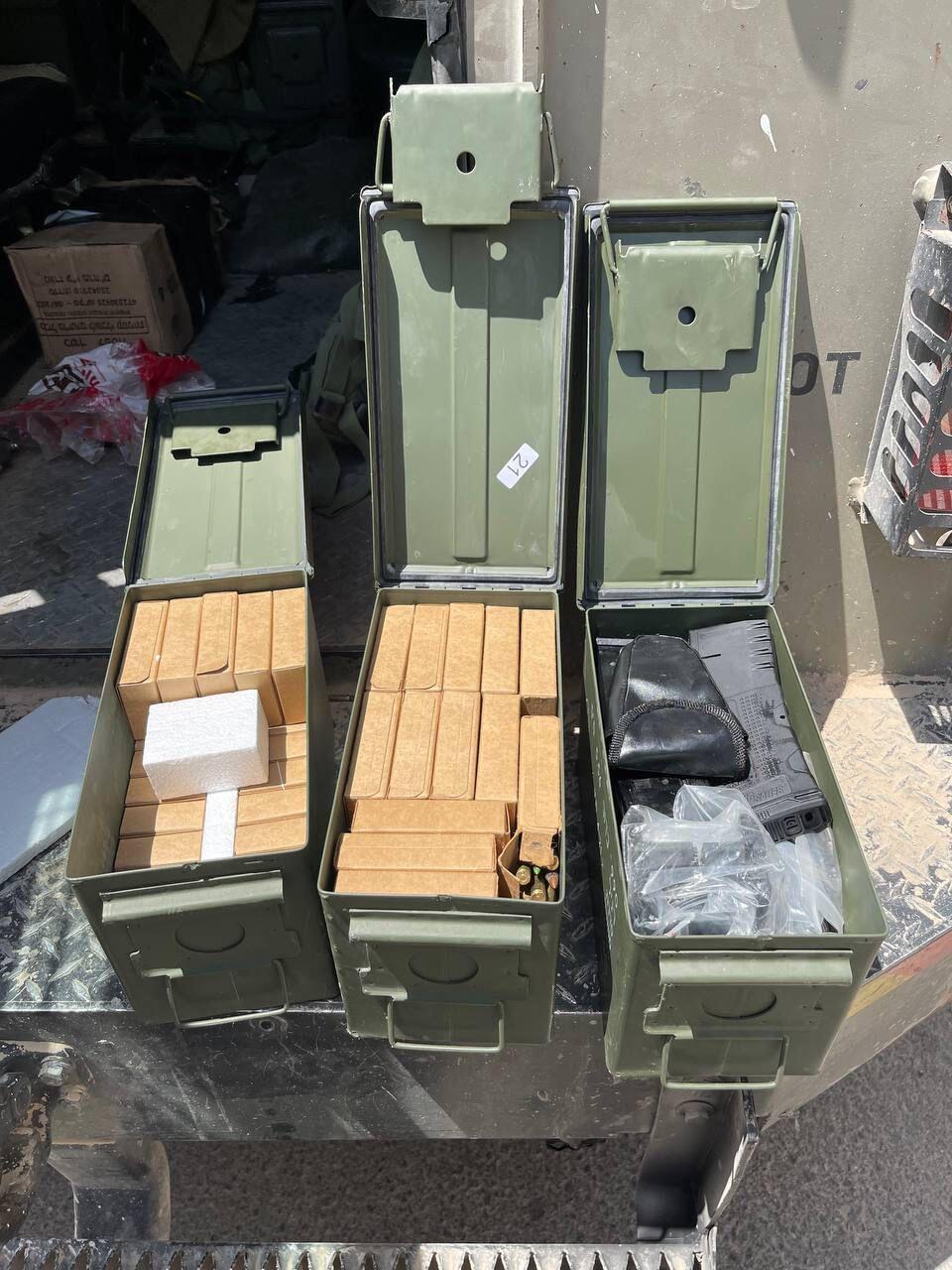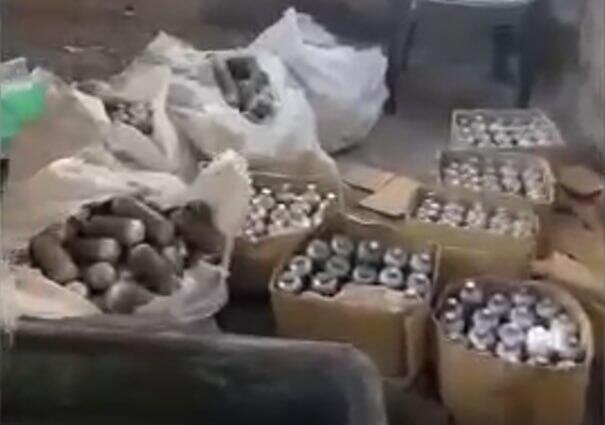The situation in the West Bank is volatile. Just this week, we received yet another reminder of the region's instability, with three attacks in a single day, two of which involved gunfire. The IDF is already paying a price, and it's a steep one: reduced training for regular brigades, more call-ups for thousands of reservists for month-long operational duties, at costs running into hundreds of millions.
More stories:
Up until about a year and a half ago, only 13 battalions were handling routine security tasks in the West Bank. Since the surge in terror in the area began, the number of battalions has nearly doubled to an average of about 25.
Yet, this is still almost a quarter of the battalions that were active in the region at the height of the Second Intifada some 20 years ago. The gap in the number of fighters on the ground can be largely attributed to advanced technologies and improved intelligence, which weren't available two decades ago.
Thousands of armed Palestinians
The dozens of casualties from attacks in the West Bank since the beginning of the year are just a harbinger of what's to come, as most trends in the region are negative. In many respects, the post-Mahmoud Abbas era is already upon us.
The IDF's Central Command recently revisited and updated its operational plans for major escalation scenarios. These are essentially a dusting off of the IDF's offensive plans in the West Bank, which had been approved by Central Command commander Major General Yehuda Fuchs before the operation in Jenin.
According to some assessments in the IDF Defense Directorate, one of every six Palestinian homes in the West Bank has a firearm, whether illegal or belonging to a member of the Palestinian security apparatus. This represents an unprecedented and massive quantity of weapons, something that has never been seen before in the West Bank.
The implication of this situation is simple – there are now tens of thousands of armed Palestinians in an area where hundreds of thousands of Israelis reside.
To attempt and combat this, the Military Intelligence Directorate allocates all its resources and capabilities for tracking, locating and warning of threats to provide decision-makers with strategic alerts for a possible incident where violence spreads mainly from the northern West Bank southward.
Intelligence officers have developed tools that allow for early destabilization of the West Bank area, anticipating the moment when thousands, and perhaps even tens of thousands of armed individuals, including from the Palestinian Authority, might carry out dozens of shooting attacks within a day on roads, junctions and settlements.
While this might sound like an unimaginable scenario considering the relatively firm grip of the Palestinian faction leaders on their members, it's worth remembering that even in the latter half of the 1990s, it was hard to imagine such a turn of events under the leadership of the Palestinian Authority.
Many Palestinian Authority officials are now branded as traitors in the West Bank due to suspicion of collaboration with Israel. Some of them have turned their weapons against Israelis over the past two years.
Nonetheless, at this time, the Palestinian Authority remains strong and works to suppress terrorism against Israelis in coordination with security forces.
Some of the attacks carried out in the past year were difficult, if not impossible, to predict, let alone warn against. This was the case with the 17-year-old terrorist who stabbed three people to death near Ariel in November last year. There are plenty of possible motives for such attacks.
According to security officials, a significant portion of lone-wolf attacks was in response to nationalist crimes committed by Jewish individuals against Palestinians. Such incidents often lead to severe terror attacks.
And when there's a motive, acquiring a weapon is not a major issue. Cold weapons, such as knives or vehicles, are immediately available to anyone, while firearms are relatively easy to obtain in the West Bank.
"Today, obtaining weapons is much easier, while obtaining ammunition has become harder," said Maj. T., an officer from the IDF's Intelligence Unit 8200 and until recently the chief West Bank chief intelligence officer.
Ammunition supplied by Israeli-Arabs
"The influx of ammunition into the West Bank comes from Israeli-Arab criminals arriving into the area. It involves larger quantities than previously known. The funding comes from Iran via Hamas and the Islamic Jihad."
Financing terror has become simpler than before. It's no longer about cash-filled suitcases or covert bank transfers via charity funds. Money is now transferred through alternative applications.
The money finds its way most often to the hands of a 15-year-old boy in Jenin's refugee camp, who camps over a ridge overlooking an Israeli settlement, and shoots toward it while documenting himself.
Meanwhile, Unit 8200's capabilities are required in the West Bank. During the IDF's extensive counterterrorism operation in Jenin, troops received intelligence support usually reserved for operations in Gaza or southern Lebanon.
Intelligence personnel provided real-time alerts to forces about the presence of armed individuals in hidden corners and behind shelters before they approached them. This allowed soldiers to target them from the ground or air and avoid getting hit by concealed explosives.
The operation revealed hundreds of high-quality explosives, some with significant firepower, hidden under the ground in unexpected volumes that surprised some in the Intelligence Corps. The phenomenon that thrived in Jenin included means seen in more serious fronts like Gaza and Lebanon.
Gaza, Lebanon and now the West Bank
And now, the IDF is using the same means in the West Bank usually reserved for other fronts. "The fact that a battalion commander is authorized to order an airstrike isn't usual procedure," Maj. T. said.
For months, Maj. T. and his unit have been working to prepare the IDF's counterterrorism operation from a highly rewarding intelligence perspective - focusing on gathering information utilizing various types of eavesdropping to track terrorists and terror infrastructure.
According to T., the operation was only the first phase of a larger mission that involved over a thousand IDF soldiers.
"Terror infrastructure has recovered after the operation in Jenin, but not the entire refugee camp. In the past, operating the camp was restrictive to approval by the chief of staff. In this operation, we enjoyed complete operational freedom, which is expected to continue."
"We've known about many explosives caches, but we also manage a balance between the price of sending forces to destroy such a cache against the likelihood of an explosive from the cache being used for a terror attack," Maj. T. explained.
"Our most important task is to find concrete information, not just for pinpointing a terror attack, but to paint a complete operational picture for decision-makers. The goal is for them to be able to adopt a policy they choose for the West Bank - preserving the status quo or escalating actions if necessary."
While many blame the Palestinian Authority for the current situation in the West Bank, Maj. T. believes that a broader approach is needed to strengthen its standing in the region.
"Mahmoud Abbas is still present, and so are his policies. According to our estimates, his successors will want to maintain his approach in favor of Fatah and the Palestinian institutions' wellbeing against the threat of Hamas taking over," he said.
"Israel has an interest in the Palestinian Authority remaining dominant and stable. A popular revolt by Palestinian residents is more challenging for us than an Intifada in terms of its impact on the current situation."


